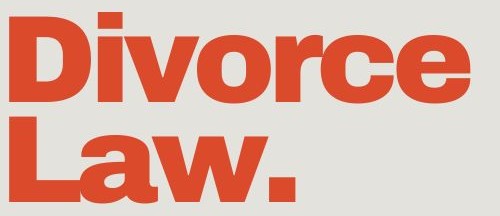Dealing with a divorce agreement to split joint accounts is tough. In California, joint bank accounts are seen as community property. This means they are split equally in a divorce settlement. This guide helps you understand the complex issues around dividing joint accounts in divorce.
I’ll look into the financial implications of divorce closely. I’ll explain how to handle shared finances well. Knowing your rights under community property laws and the risks of keeping joint accounts open are key.
I want to give you the knowledge you need. This way, you’re ready for the challenges of dividing joint accounts in divorce. If you’re wondering what to do after a separation, click here for help: what to do next.
Understanding Joint Accounts in Divorce
When dealing with divorce, knowing what a joint account definition is is key. Joint accounts are shared by spouses for managing expenses like bills and groceries. They are useful during marriage but can be complex during divorce.
What is a Joint Account?
Joint accounts are for both partners to use, often with money from both. They can be checking or savings accounts for shared costs. While they help manage money together, they can cause problems during divorce. Figuring out who owns what and how to split it is important.
Why Are Joint Accounts Complicated in Divorce?
Joint accounts can lead to joint account complications in divorce. Disagreements can happen when one person tries to take money without the other’s okay. In Florida, courts usually don’t punish for taking money from shared accounts if it’s needed. But, it’s important to be open about money to avoid future financial issues.
Even if you have separate accounts, the law might still divide marital assets. This means even separate funds could be split. It’s wise to get legal advice and keep clear records during divorce. For more on dealing with joint account issues in divorce, check out this helpful resource.
| Aspect | Joint Account Characteristics | Implications in Divorce |
|---|---|---|
| Definition | Accounts shared by spouses for mutual expenses | Can lead to complications in asset division |
| Usage | Covering expenses like groceries or bills | May cause disputes over withdrawal permissions |
| Legal Considerations | Subject to equitable distribution laws | Requires careful documentation and transparency |
| Separation | Potential for opening individual accounts | Limits risk of asset dissipation before divorce |
Key Elements of a Divorce Agreement
A divorce agreement is a key guide for couples going through a split. It deals with important issues like dividing assets and figuring out child support. Each part is crucial for a fair outcome for both sides.
Assets and Liabilities
It’s vital to list out assets and liabilities in divorce. This includes things like joint bank accounts and properties. In some places, like California, both spouses own what they got during the marriage. This includes things like retirement plans, which need a special order for fair sharing.
Child Support and Alimony
Child support and alimony are big parts of a divorce agreement. They help support kids and sometimes one spouse. Courts look at income and who takes care of the kids to set fair support. This ensures kids stay stable.
Property Division
Dividing property is a big part of a divorce. It covers both what you own and what you owe. Getting help from experts can make sure things are fair. It’s also smart to close joint accounts to start fresh.
| Key Element | Details |
|---|---|
| Assets | Includes real estate, bank accounts, retirement accounts, and personal property. |
| Liabilities | Debt responsibilities like mortgages, loans, and credit cards need addressing. |
| Child Support | Financial support calculations based on income, visitation, and needs of children. |
| Alimony | Support paid by one spouse to another, determined by length of marriage and financial need. |
| Property Division Laws | Legal guidelines that dictate how assets and debts are divided during divorce. |
The Process of Reaching a Divorce Agreement
Getting to a divorce agreement can feel really tough. Knowing the steps in the divorce negotiation process can make things easier. Talking things out in a good way is key. It lets both sides share their needs and find common ground without fighting.
I’ll explain the important steps in negotiation. Then, I’ll talk about the differences between mediation in divorce and the benefits of going to court.
Negotiation Steps
Starting the divorce negotiation process means talking openly and clearly. Here are some key steps:
- Identify key issues: Find out what needs to be solved first.
- Gather relevant information: Get all the financial and asset details you need.
- Set goals: Know what you want to get out of the negotiation.
- Propose solutions: Share possible solutions and be ready to compromise.
- Review and agree: Find a solution that both sides can live with.
Mediation vs. Litigation
Choosing between mediation and going to court can really change how you negotiate. Mediation uses a neutral third party to help find solutions. It’s a way for couples to work together and keep control over the outcome. This can help avoid more conflict.
Mediation has some big advantages:
- Privacy: Mediation talks are kept private.
- Empowerment: Couples can make agreements that fit their unique situation.
- Time efficiency: Mediation usually means faster results than court.
But, sometimes court is needed when talks break down. Knowing the benefits of going to court is important:
- Formal structure: A judge’s decision can clarify tough issues.
- Enforceability: Court orders are legally binding, making sure both sides follow through.
- Protection in complex cases: Court offers the legal help needed in complicated situations.
Importance of Closing Joint Accounts
When going through a divorce, it’s key to close closing joint accounts in divorce to protect your money. Keeping these accounts open can lead to big problems. It’s important to know the risks of open joint accounts to make smart choices about splitting up your finances.
Risks of Keeping Joint Accounts Open
Keeping joint accounts open during a divorce can be risky. One person might take money without telling the other, which can mess up your finances. This could leave one person without enough money or with unpaid debts.
Also, taking money from these accounts can lead to legal issues. This can affect how you settle your divorce. In places like Arizona and California, the law wants to split your assets fairly, making things even more complicated.
Steps to Close a Joint Account
To avoid risks, it’s smart to steps to separate finances early. Here’s a simple guide to close a joint account:
- Tell the bank you want to close the account and show your ID.
- Move any money left to accounts just for you, so both of you can get to your money.
- Open your own accounts to manage your money better.
- Make sure the joint account is really closed, checking for any last-minute charges.
By following these steps, you can avoid problems and start managing your money on your own. Knowing the rules about joint accounts and taking action can help you get through this tough time. For more help, check out legal advice on splitting up your finances.

| Risk | Description |
|---|---|
| Financial Manipulation | One spouse may withdraw funds without the other’s consent, jeopardizing financial stability. |
| Legal Consequences | Borrowing or withdrawing from joint accounts could lead to repercussions in divorce settlements. |
| Mismanagement of Funds | Unclear division of assets can result in disputes over the appropriate allocation of remaining funds. |
How to Split Funds from a Joint Account
Splitting joint account funds can be tough during a divorce. It needs a careful plan to make sure everything is fair. You must think about who contributed what and the financial relationship between the two.
Determining Fairness in Division
When dividing joint account funds, it’s key to look at who contributed what. Important things to consider are:
- Personal contributions: Who put money in and how much.
- Usage history: How the money was spent during the marriage.
- Existing agreements: Any financial plans or agreements made together.
In New Jersey, the law aims for a fair split, not always 50/50. California, on the other hand, usually splits joint accounts equally for simplicity.
Documentation Required
To support the documentation for joint account splitting, gather financial records. These include:
- Bank statements: Show account activity and contributions.
- Transaction records: Track how funds were used for joint expenses.
- Legal documents: Prenuptial or postnuptial agreements can clarify asset division.
Having detailed records helps avoid disputes and makes the division smoother. Being open and clear is crucial. It ensures fairness and prevents misunderstandings.
Legal Considerations in Account Division
Dividing assets in a divorce is complex, especially with joint accounts. It’s key to understand the legal side of dividing accounts. Each state has its own rules, but they all aim to figure out if an account is marital or separate.
State Laws on Marital Property
State laws on marital property are crucial in dividing assets. Some states follow community property rules, where all income and assets from the marriage are shared. Others use equitable distribution, aiming for fairness but not always equality.
It’s important to know if an account is marital or separate. This can affect how it’s divided in a divorce. Keeping detailed records of joint accounts is a good idea. This can help show if funds are part of the marital estate.
Setting up separate accounts for personal expenses can also help. It can make things clearer and prevent arguments.
Role of Attorneys
Attorneys play a big role in divorce, especially in dividing assets. They can explain the impact of joint accounts and how to protect your money. They can also help with creating a marital settlement agreement to divide assets fairly.
Attorneys also offer advice on managing joint credit and loans. They can help with current balances and future credit plans. With an attorney, you can make sure your rights are protected and assets are divided fairly.

Creating a Comprehensive Divorce Agreement
When making a divorce agreement, every detail matters. A well-organized comprehensive divorce agreement format makes the post-divorce journey smoother. It helps everyone know their rights and duties.
Formatting Your Agreement
A good agreement has key parts, like:
- Assets and Liabilities: It lists all shared and personal property to clear up who owns what and who owes what.
- Spousal Support: It’s important to include details like how much, how often, and for how long to prevent future arguments.
- Custody Arrangements: Clear custody terms and duties are crucial to keep both sides in agreement.
Using headings and bullet points makes it easier to read. Keeping the numbering consistent helps find specific parts quickly, making the document clearer.
Including Financial Disclosures
Financial disclosures in divorce are key for honesty. They cover all income, debts, and assets. Being open about finances builds trust and lowers the chance of future legal issues.
| Component | Description |
|---|---|
| Joint Accounts | Detailed listing of shared account balances and division strategies. |
| Income | Both parties’ incomes must be disclosed to determine equitable distribution. |
| Debts | Full disclosure of all debts ensures fair liability distribution. |
It’s important to include rules for changing the agreement, what happens if you get back together, and when it starts. Having all the info ready before a lawyer looks at it makes things easier. For more on divorce settlements, check out this resource.
Common Disputes Over Joint Accounts
Disputes over joint accounts often happen during divorce talks. They can cause tension between spouses. Knowing what usually causes these disagreements helps in finding ways to solve them peacefully. Talking openly and being ready to compromise can help a lot.
Addressing Disagreements Amicably
To handle joint account disputes, try these tips:
- Open dialogue: Talk honestly about your financial situation and worries.
- Compromise: Look for a solution that works for both sides.
- Consider professional advice: Getting legal help can offer new insights.
New Jersey’s rules on dividing assets are fair. They consider who contributed what and how assets were mixed. This way, no one feels cheated.
When to Seek Legal Assistance
Sometimes, you need a lawyer to help solve disputes. If one spouse takes money without agreeing or won’t talk about dividing assets, you should get legal advice. Knowing when to ask for a lawyer’s help is key.
- A big amount of money is taken from the joint account without agreement.
- One spouse won’t cooperate in dividing assets.
- You need help understanding your rights to mixed assets.
Opening your own bank account can protect your money. For more advice on dealing with these issues, check out this guide.
Finalizing the Divorce Agreement
Finalizing the divorce agreement is the last step in a long legal journey. It involves submitting your agreement to the court. Knowing the court submission process well is key to avoid delays.
Submitting to the Court
The court submission process needs careful attention. I must prepare all necessary documents well. These include:
- Completed divorce petition
- Signed divorce agreement
- Any supporting financial documents
It’s important to follow local court rules, as they can vary. Once all documents are ready, I can file them with the court clerk. The court might schedule a hearing to confirm the agreement. This hearing is usually simple if both sides agree on the terms.
Post-Divorce Steps
After finalizing the agreement, several financial steps are crucial. Managing finances on my own is key for stability. I need to:
- Open new bank accounts in my name to separate finances.
- Update all financial information, including beneficiaries and insurance policies.
- Create a detailed budget to manage income and expenses independently.
- Stay aware of any tax implications that may arise from the divorce.
Managing my finances well is the first step to a successful post-divorce life. Getting advice from a financial advisor is wise for complex situations. For more tips on managing finances after divorce, I can look at additional resources.
| Action | Description |
|---|---|
| Open New Accounts | Ensure personal finances are separate from an ex-spouse. |
| Update Financial Information | Revise policies, beneficiaries, and bank accounts to reflect current status. |
| Create Budget | Plan income and expenses to maintain financial health after divorce. |
| Consult Professionals | Seek advice from financial advisors for effective post-divorce financial management. |
By following these steps, I can smoothly transition into managing my finances after divorce. This will help me focus on a brighter future.
Moving Forward After a Divorce
Moving on after a divorce is a big change. Managing my finances well is key during this time. I need to understand my financial situation to make a new budget, pay off debts, and rebuild my credit.
It’s important to look at my financial situation again. This includes how assets were divided during the divorce. It helps me see what I have and what I need to work on.
Managing Personal Finances
Creating a strong financial identity is my first goal. I will make a budget that covers my basic needs and saves for emergencies. Keeping track of my spending helps me find ways to save money.
Using budgeting tools or apps can help me stay organized. This makes managing my finances easier during this big change.
Rebuilding Financial Independence
In this new chapter, I need to think about my long-term financial goals. This includes saving for retirement and investing. I will use resources like guides on the legal process to make smart choices.
Getting advice from financial planners and lawyers is also crucial. They help me deal with challenges and work towards financial freedom. Being proactive with my finances can turn this tough time into a chance for growth and empowerment.

